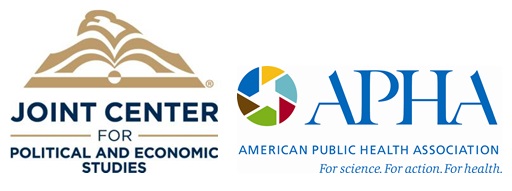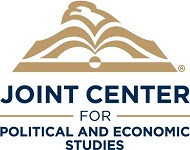June is Men’s Health Month! Throughout the month, the Joint Center will host a series of events promoting the health and well being of boys and men of color.
- June 10th- Men’s Health Roundtable: Prioritizing Prevention, Planning and Health Promotion: Pathways to Improve the Health and Wellbeing of Boys and Men of Color
- June 17th- Men’s Health Twitter Chat: I am My Brother’s Keeper: Strategies for Prioritizing the Health and Wellbeing of Boys and Men of Color
Scroll down for more details on each event.

Please join the Joint Center for Political and Economic Studies, the American Public Health Association and the Men’s Health Network for a Men’s Health Roundtable: Prioritizing Prevention, Planning and Health Promotion: Pathways to Improve the Health and Wellbeing of Boys and Men of Color a discussion on the nation’s progress toward meeting national objectives on the health and wellbeing of boys and men of color (BMOC):
Date: June 10, 2014
Time: 8:30 a.m. to 10:00 a.m.
Where: Joint Center for Political & Economic Studies
805 Fifteenth Street, N.W., Second Floor, Washington, DC
Continental breakfast will be served
The roundtable discussion will highlight best practice recommendations and update current progress of national health objectives for preventing disease and promoting health among BMOC.
Opening Remarks:
- Georges C. Benjamin, M.D., Executive Director, American Public Health Association
- Brian D. Smedley, Ph.D., Vice President and Director, Health Policy Institute, Joint Center for Political and Economic Studies
The participants for Tuesday’s panel are:
- Ricardo LaGrange, Ph.D., Assistant Professor of Pediatrics, Division of Adolescent and Young Adult Medicine, Children’s National Medical Center;
- Alphonso Gibbs, Jr., L.I.C.S.W., L.C.S.W-C., Men’s Health Network;
- Allen Herman, M.D., Ph.D., Senior Staff Associate Econometrica, Inc., Co-Chair, Joint Center’s Commission on Paternal Involvement in Pregnancy Outcomes;
- Roland J. Thorpe, Ph.D., Assistant Professor, Center on Aging and Health, Johns Hopkins Bloomberg School of Public Health; and
- Jermane Bond, Ph.D., (Moderator) Research Scientist and Director, Joint Center’s Commission on Paternal Involvement in Pregnancy Outcomes.
“African American and other racial/ethnic minority males have increased risk for morbidity across the lifespan and experience diminished life expectancy more than any other group,” said Spencer Overton, the Joint Center’s President and CEO. “This Roundtable discussion is part of the Joint Center’s on-going efforts to advance a research, policy, and clinical practice agenda that will prioritize the health and wellbeing of boys and men of color.”

Please join the Joint Center for Political and Economic Studies, the American Public Health Association and the Men’s Health Network for a Men’s Health Twitter Chat: I am My Brother’s Keeper: Strategies for Prioritizing the Health and Wellbeing of Boys and Men of Color a live discussion on the importance of prioritizing health as a key determinant for life opportunities in the White House My Brother’s Keeper initiative.
Date: June 17, 2014
Time: 1:00 p.m. to 2:00 p.m.
Hashtag: #MBKhealth; #BMOChealth; #MensHealthMonth
During the Twitter Chat, we will discuss key issues for the health and wellbeing of BMOC:
- Health Promotion & Prevention,
- Mental Health
- Family Planning & Reproductive Health
Morgan McLeod is the Program Assistant and New Media Strategist at the Joint Center







 Joint Center Statement Regarding the “My Brother’s Keeper” Report
Joint Center Statement Regarding the “My Brother’s Keeper” Report


